Conflict-Related Sexual Violence (CRSV) is a pressing topic for our society and, at the same time, one that is not given enough attention. CRSV is considered one of the most cynical war crimes committed by the russian army, primarily against the civilian population, which is under the control of the occupiers.
Journalists can become the voices of CRSV survivors, give their testimonies global exposure, join the global documentation of war crimes, and seek justice, recognition, and support from society and the international community. This topic was discussed by Ukrainian and foreign experts, government officials, human rights defenders, and journalists who gathered on July 2 at the international forum titled Post-Traumatic Growth Of Women Affected By CRSV In Conditions Of Protracted War – Numo, Sisters!
The event was initiated and organized by the human rights non-governmental organization SEMA Ukraine, a community of women who survived CRSV in the russian-Ukrainian war and managed to transform the traumatic experience into post-traumatic growth.
“We are grateful for the courage of those who survived sexual violence during the war; we admire their dedication and the proactive position of civil society and government officials. We strive to create an effective system of support and compensation for CRSV survivors,” said Julie Taylor Broussard, Deputy Representative for UN Women in Ukraine, in her welcoming speech.
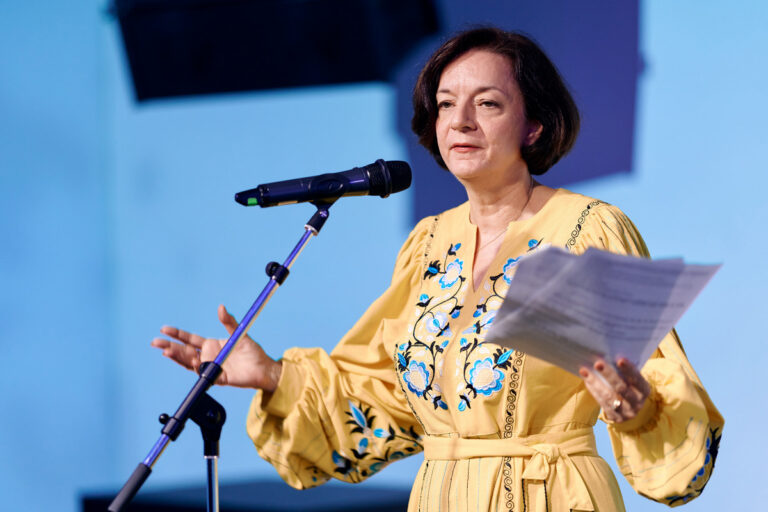
According to the Government Commissioner for Gender Policy, Kateryna Levchenko, as of today, the UN Human Rights Monitoring Mission in Ukraine has registered 85 crimes of sexual violence for the year 2023.
“We should admit that in reality, this is the number of crimes committed not only in one region but perhaps in one district or village… The task of organizations, international partners, and the state is to help reveal the voices of survivors, strengthen them, and support them. One of the opportunities for such strengthening is the Pilot Project for the provision of Emergency Reparations to survivors of CRSV as a result of russian armed aggression against Ukraine – a very demonstrative example of cooperation and interaction of the state, international partners, public organizations, and directly those who experienced sexual violence during the war. It is important that all the data be recorded because we want to visualize the huge volume of this war crime committed by the russians in Ukraine,” the government official said.
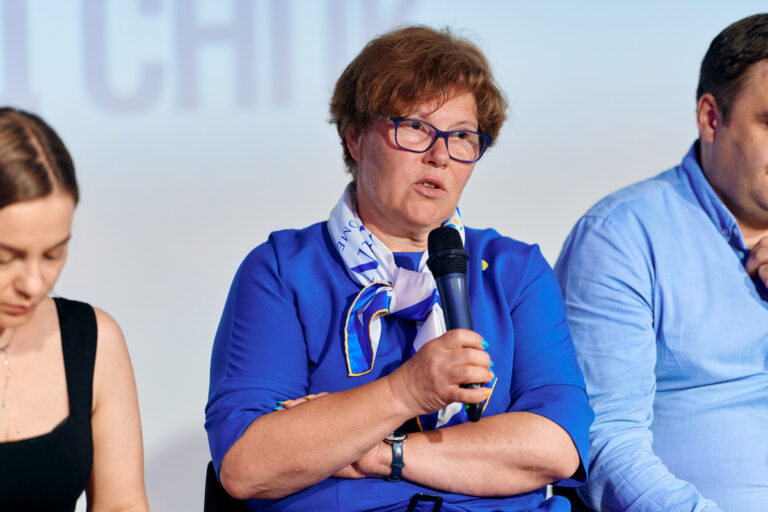
In turn, the representative of Dr. Denis Mukwege Foundation (which supports CRSV survivors and protects their rights), Fedir Dunebabin, added that to date, the Foundation has registered approximately 200 appeals, of which 94 have already been processed by a separate committee. In addition, the organization provides consultations through a national hotline and, together with partners, various types of assistance to survivors.
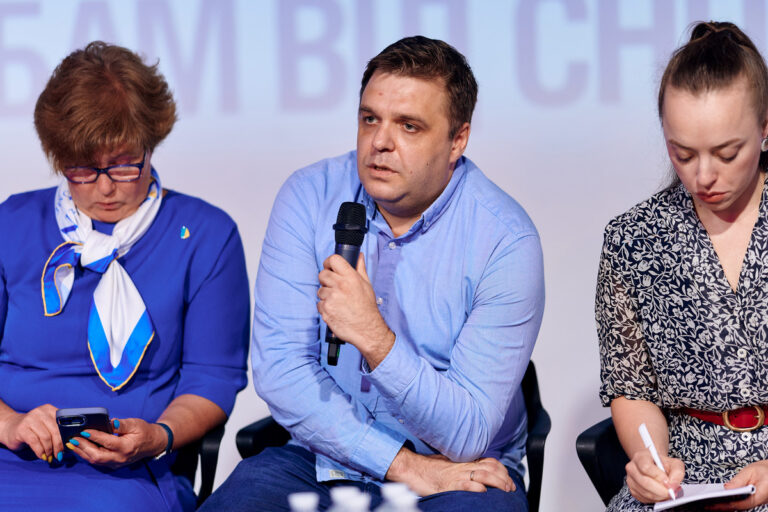
A separate panel discussion was devoted to the specifics of the media’s work with the CRSV issue, informing society and survivors of the importance of documenting russian war crimes, as well as conveying with the help of the media the main issues regarding support for survivors.
Is the topic of CRSV covered sufficiently in the international and Ukrainian society in the context of a war crime against the civilian population?
“There is a lack of materials on CRSV in the media. Objectively, this is a great professional challenge for journalists. At the same time, we are very grateful for the great cooperation in spreading this important knowledge among our colleagues!” emphasized Sergiy Tomilenko, the President of the National Union of Journalists of Ukraine (NUJU).
According to NUJU sociological research, media workers mostly avoid covering CRSV because they are afraid of harming the psychological stability of the survivors and dying in the crisis. According to Sergiy Tomilenko, at the same time, the media often lack the competence and expertise to present such socially important topics to their audience.
The NUJU joins in ensuring progress in the understanding of CRSV. For example, it organizes training sessions attracting qualified coaches. Within the framework of cooperation with the Dr. Denis Mukwege Foundation, the NUJU trained about 60 journalists, conducting in-depth training sessions in various cities of Ukraine. The Union team also developed a guide on what journalists need to know about CRSV based on expert advice and international experience.
“Last year, I participated in the World Press Freedom Day in New York at the invitation of the UNESCO headquarters and asked many experienced colleagues about this topic,” said Sergiy Tomilenko. “I especially remembered the advice of the famous human rights defender, Oleksandra Matviichuk, who said that journalists are the voices of survivors.”
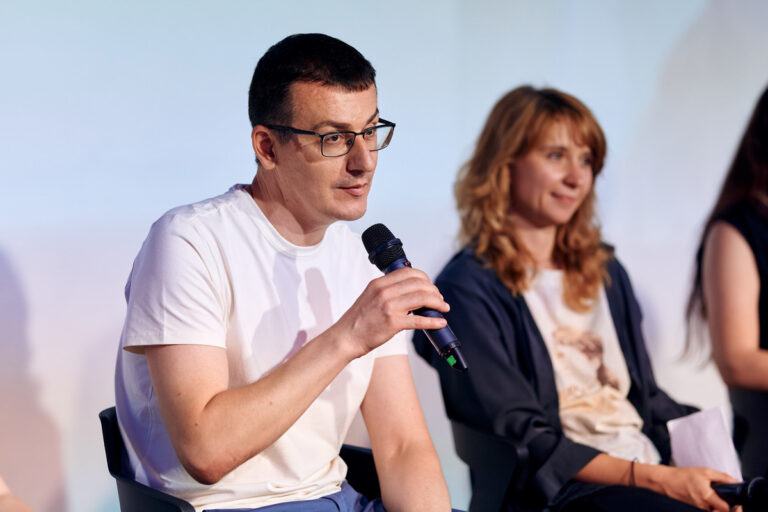
He also added that wartime proves the need for CRSV coverage in front-line media, particularly print publications. Many survivors currently live in high-risk areas. For example, since April 2022, people have been living without electricity in shelters or basements in Orikhiv, Zaporizhzhia Region. For them, front-line newspapers are the only means of information. Accordingly, the NUJU trains the editors of such media to publish hotline numbers and important information, thereby giving hope to the survivors and bringing the moment of justice closer.
“In Ukraine, russian troops commit a huge number of crimes,” emphasized Yevheniya Motorevska, the head of the investigative department of The Kyiv Independent/editor of the documentary called He Came Again. “Only according to the data of the regional general prosecutor, it is more than 120,000 people. Many of the topics are covered in the media: torture, inhumane treatment of prisoners of war, crimes against civilians… However, sexual violence is the least talked about. On the one hand, the survivors are not ready to talk about it. On the other hand, journalists understand the great responsibility and cannot always deal with such a complex topic. And this combination of factors leads to the fact that, apparently, all the materials that were related to the coverage of this war crime can be counted on the fingers.”
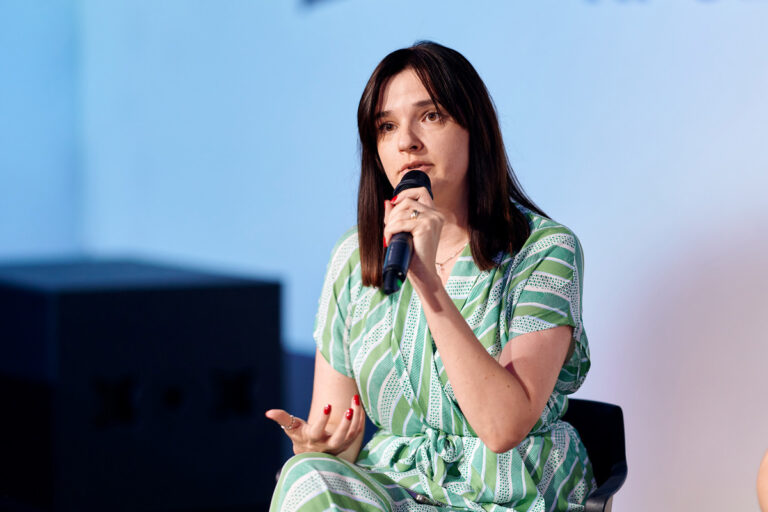
According to the representative of the Center for Civil Liberties, Anna Trusheva, the problem of sexual violence is not well represented in the information space; therefore, during the interaction of the organization with journalists and specialists, try to understand as much as possible what state the survivor is in now.
“We document war crimes and try to talk about them during any public speeches. You know Oleksandra Matviichuk very well. She very often cites as an example various stories documented by human rights defenders – representatives of our Tribunal for Putin initiative, which, since the beginning of the full-scale invasion, has been documenting all war crimes, including illegal detentions, rapes, and murders of people throughout Ukraine. So far, more than 77,000 war crimes have been recorded by the initiative,” the expert added.
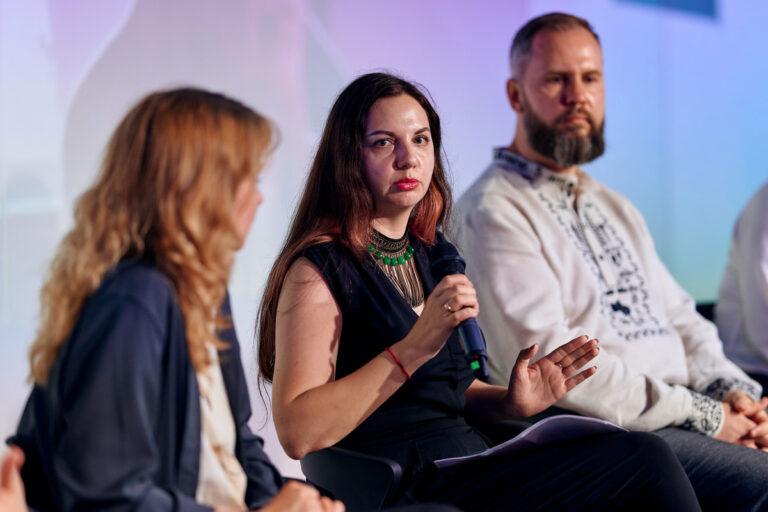
According to Ihor Kotelianets, a radio presenter and representative of the Association of Relatives of Political Prisoners of the Kremlin non-governmental organization, sufficient information will be provided when, speaking about the consequences of the war on international platforms, Ukrainian and foreign diplomats, representatives of the UN, OSCE, etc., highlight the statistics of sexual crimes in particular during the war.
“When we communicate with the victims of illegal imprisonment – people who, in particular, experienced sexual violence or were witnesses of such events, we understand why we document it – emphasized the media person and explained that a lot is decided by the permission (given or not given by a person) to the public dissemination of this information for media or advocacy purposes.
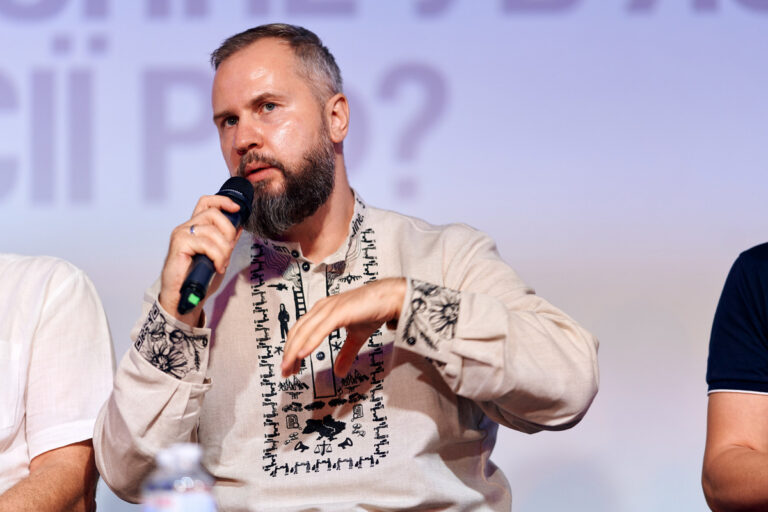
He gave an example of the program on which he has been working with his colleagues at the Public Radio since 2017 – Free Our Relatives. The program was created to be the voice of the people fighting for the release of their relatives from illegal russian imprisonment.
“Even then, we noticed: the names of illegally imprisoned persons, which are heard in the media, later fall into the monitoring of high-ranking officials (at least at the level of our state). And they, seeing that this topic or a certain person is being discussed in the mass media, are more willing to come into contact with the relatives of the survivors who come to them in search of justice and help. And, in general, then the state takes more care of these issues… I see that many colleagues want to cover the topic of CRSV, but sometimes it happens for the sake of clickable headlines,” noted Ihor Kotelianets. “We ask questions very carefully, and if a person is not ready to talk about it, we never bring them to a conversation (even if we understand that certain details from their story will bring a click, and more people will see and hear it).
According to the representative of the Ukrainian Women Lawyers Association, JurFem, Khrystyna Kit, the written material about CRSV should be made as useful as possible for other survivors of sexual violence during the war. A person must find out for themself: what to do next with this? Who to contact? And what will happen after telling such a story?
“Everything that survivors or witnesses say publicly is important. That’s why it’s important to understand that not all information is the kind that needs to be covered. Therefore, it is worth consulting before the conversation with colleagues and lawyers and distinguishing what is worth talking about,” she explained.
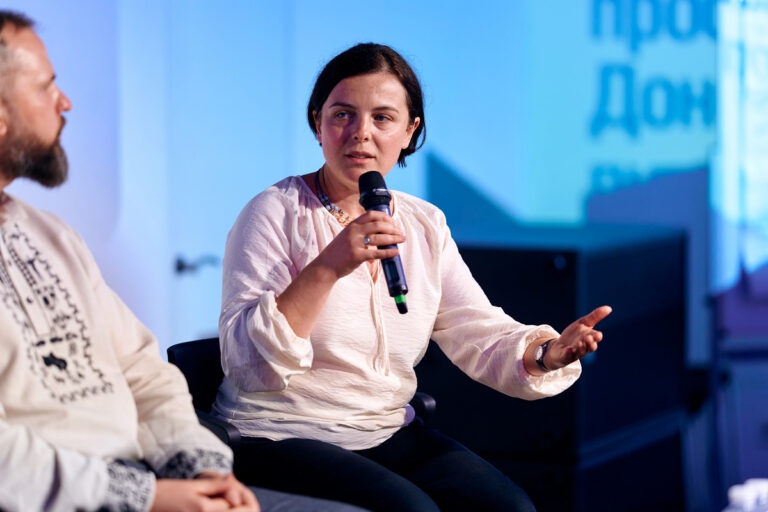
Khrystyna Kit encouraged writing about CRSV crimes not only in national but also in foreign media, where there is also little experience and expert materials about sexual violence related to the conflict in Ukraine. This will help the international community to understand our peculiarities of investigation and prosecution of the guilty.
Ukrainian men and women should not repeat the mistakes of Kosovo
Media journalist Liudmyla Makei lives and works in the capital of Kosovo, Pristina, under the Journalists-in-Residence Kosovo program. During these two years, she got to know specialists who are involved in CRSV coverage. Liudmyla Makei also acts as an expert at NUJU training sessions dedicated to the coverage of sexual violence during the war, which NUJU conducts together with the Dr. Denis Mukwege Foundation. She joined the discussion online.
“The Republic of Kosovo is a country on the Balkan Peninsula, which was in a state of active war 25 years ago. At that time, 20,000 people survived sexual violence: women, men, and children (only according to official data). My Kosovar colleagues tell me: tell the Ukrainians not to repeat our mistakes,” she said.
According to the journalist, the mistake of Kosovo is that the conversation about sexual violence during the war began 14-15 years after the end of hostilities. This time has not played in favor of the survivors because their memory has deteriorated, life circumstances have changed, and now it is becoming more and more difficult to bring the culprits to justice.
“Out of the cases of 20,000 survivors, only two offenders received court summons and it happened only due to the fact that those cases had not been talked about for 15 years. It all started in Kosovo with NGOs that interviewed people returning from Albania and other countries to Kosovo. Then the topic of sexual violence actually came out,” says Liudmyla Makei.
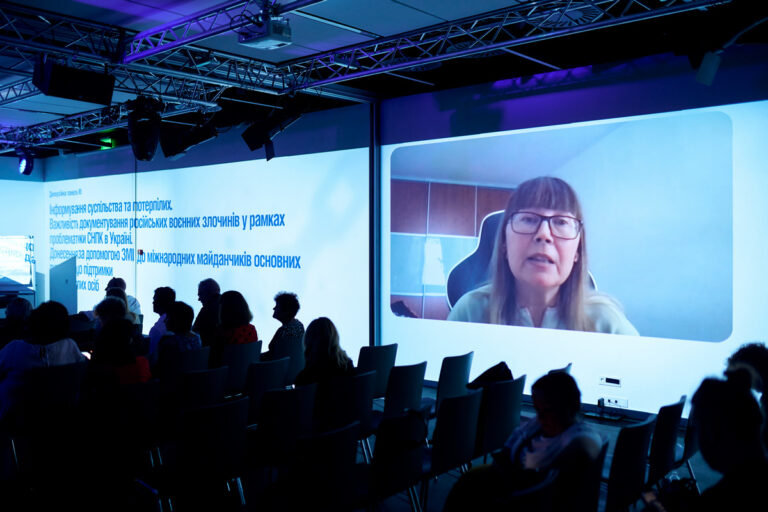
According to her, an empathic approach is now practiced in Kosovo: that is, journalists are active listeners of people who trust them with their stories. Survivors are not always ready to talk about their pain because it is trauma, and interviews are re-traumatization. However, this is the only way to make the information a public testimony and a reason to punish the criminals.
According to Liudmyla Makei, we should not chase flashy headlines but be as delicate as possible. Media workers should remember that they have a huge responsibility.
“However, not only journalists are nor the only ones able to tell the stories of survivors,” added Liudmyla Makei, “Those can also be any public figures: artists, writers and everyone who has authority in society. In Kosovo, such an action began in 2018; it is called Be My Voice and continues to this day. On the condition of anonymity, they began to tell the stories of survivors. They created an electronic database, where they entered all the people who passed the examination, and later – a book of testimonies of women and men who suffered from sexual violence during the war. Undoubtedly, we have an incredible amount of work in Ukraine, but we are ready to work!”
How should the media cover the topic of CRSV?
The key recommendation of the NUJU is to always prepare for work and continuously improve the level of qualifications. According to Sergiy Tomilenko, superficiality, especially in the CRSV topic, can cause a lot of trauma.
“The material will be really professional only if the journalist uses information not for traffic or popularity but for the sake of helping by covering a specific story. This is, of course, a responsible job. We say that journalists are professionals, not just people who collect information. Our specialty is not only craft. It is a mission to fight injustice,” he emphasized.
The problem of CRSV should sound widely: not only from associations defending the rights of survivors but also from the media, public, and international organizations. It should also be discussed at the regional level. Effective ways of working with the topic of sexual violence during the war were also proposed by other speakers of the discussion.
Yevheniya Motorevska advised:
- Attend training sessions, study recommendations, and read manuals of major international media.
- Pay attention to the work of the Dart Center, a project from Columbia University that teaches how to work with people who have experienced trauma.
- Remember: Working with survivors of sexual violence and war crimes must be based on respect. Human experiences and feelings are more important than the story itself.
- When working with trauma journalism, it is important to give interlocutors a sense of master control: allow them to say only what they want, explain the appearance of the final work, and agree on the material and changes in it.
Anna Trusheva will share a successful case from the experience of the Center for Civil Liberties when cooperation with the media played a very important role.
“During one of the war crimes documenting visits to the Chernihiv Region, we learned about the story of a math teacher who was kidnapped from her parents’ home by the occupiers and who was in russia for more than six months at some bakeries. We told everyone this story: then it was written about in the New Yorker, Washington Post, etc., and thanks to such great publicity (taking into account the enormous advocacy work of human rights defenders), Viktoriya Andrusha returned home. We gave her some time to recover and then decided as a team to make a documentary based on her testimony, which we show at various foreign venues,” she said.
Ihor Kotelianets advised:
Do not force a person to talk about what they are not ready to share, in particular, to say that it is important for advocacy, Ukraine, or another reason. A person has the right to respect, dignity and the choice to keep something a secret if they feel it is necessary.
Draw attention to the problem of men as survivors of sexual violence as a result of war. This can significantly affect the general perception of CRSV in society.
In particular, ask survivors whether they cooperate with psychologists and lawyers. Journalists should ask the person as much as possible about the adverse effects of this publicity, explain what options there are for interaction with human rights and advocacy organizations, etc. By the way, lawyers are those people who can also help journalists pay attention to certain aspects of one or another story.
We would like to remind you that the National Union of Journalists of Ukraine prepared an electronic version of the brochure called CRSV: What Journalists Need To Know with basic informational materials and recommendations for proper coverage of the CRSV topic together with the international Dr. Denis Mukwege Foundation. This organization has long and thoroughly supported CRSV survivors and defended their rights.
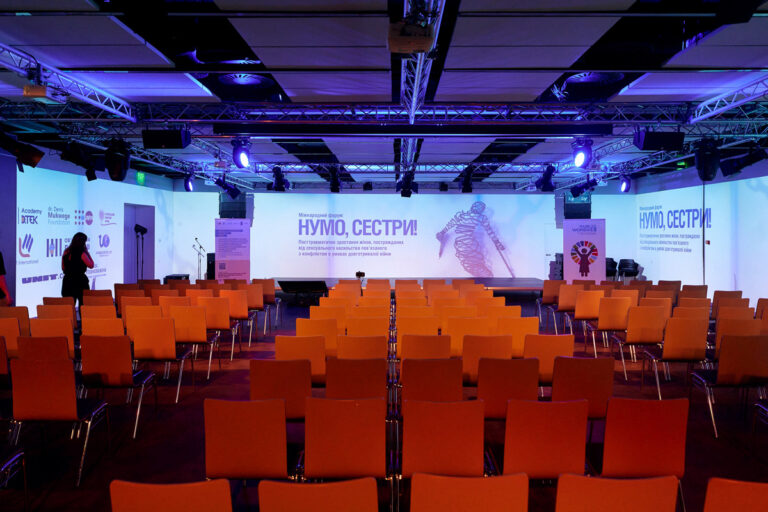
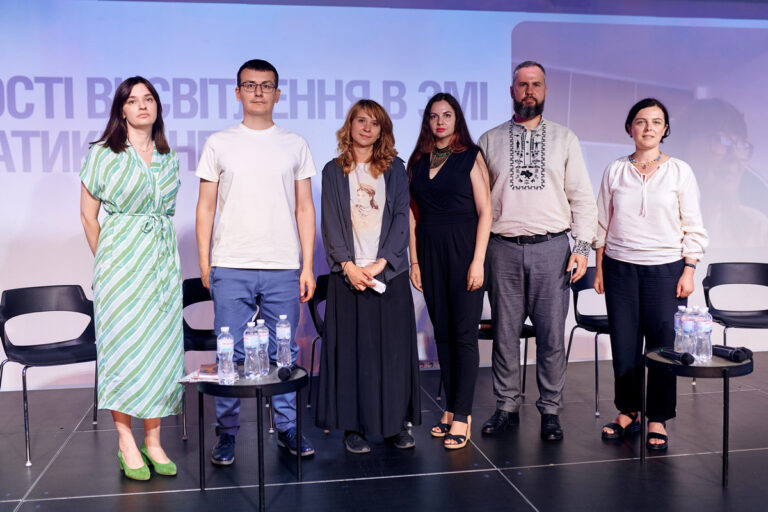
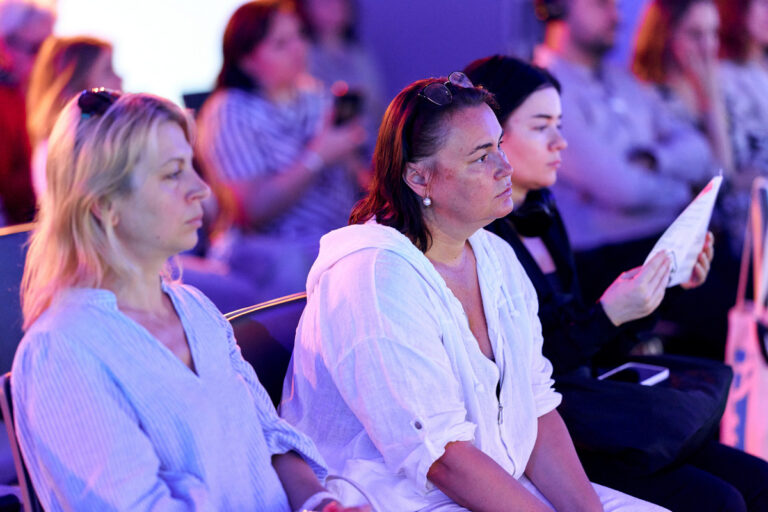
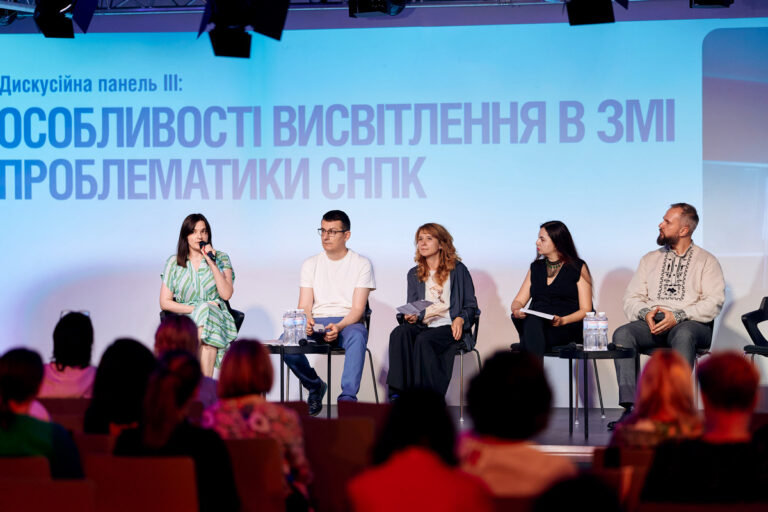
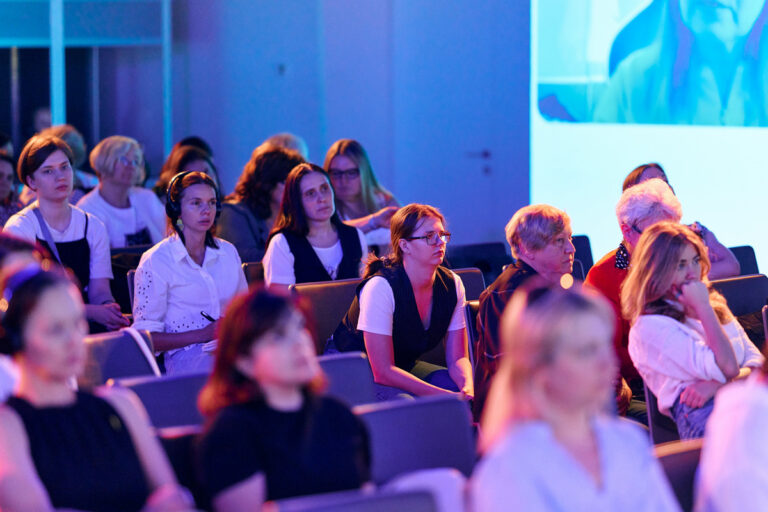
Valeriya Muskharina, NUJU information service
Photos by Stanislav Kartashov

 THE NATIONAL UNION OF
JOURNALISTS OF UKRAINE
THE NATIONAL UNION OF
JOURNALISTS OF UKRAINE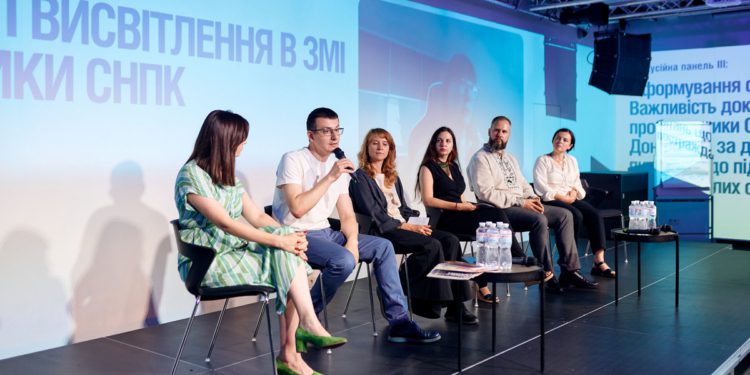
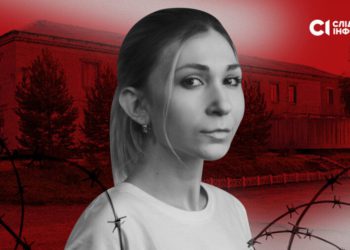















Discussion about this post